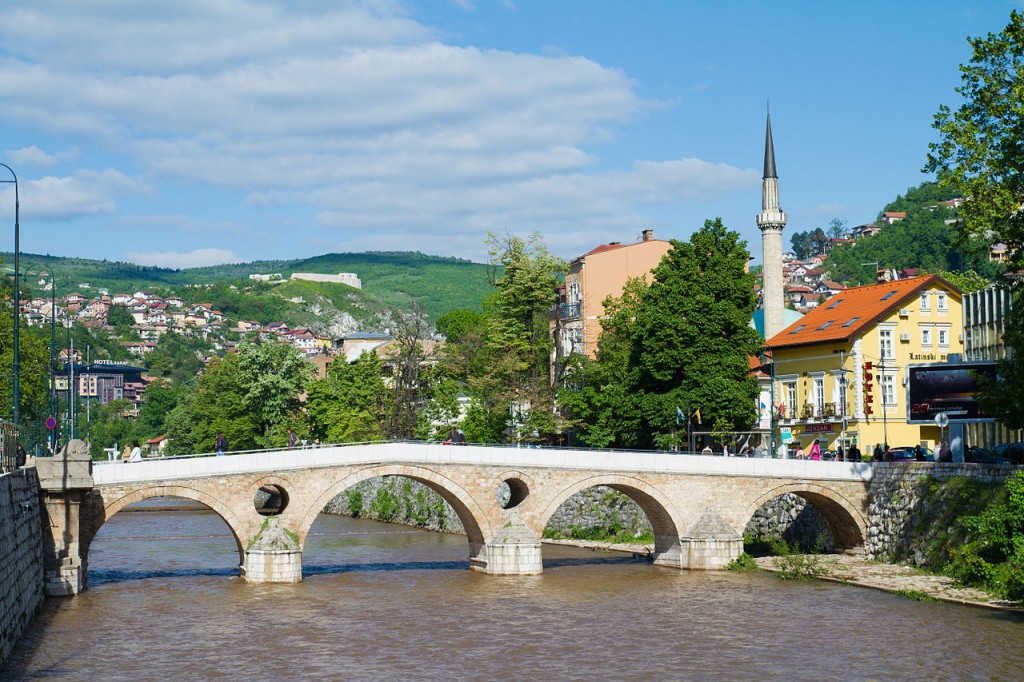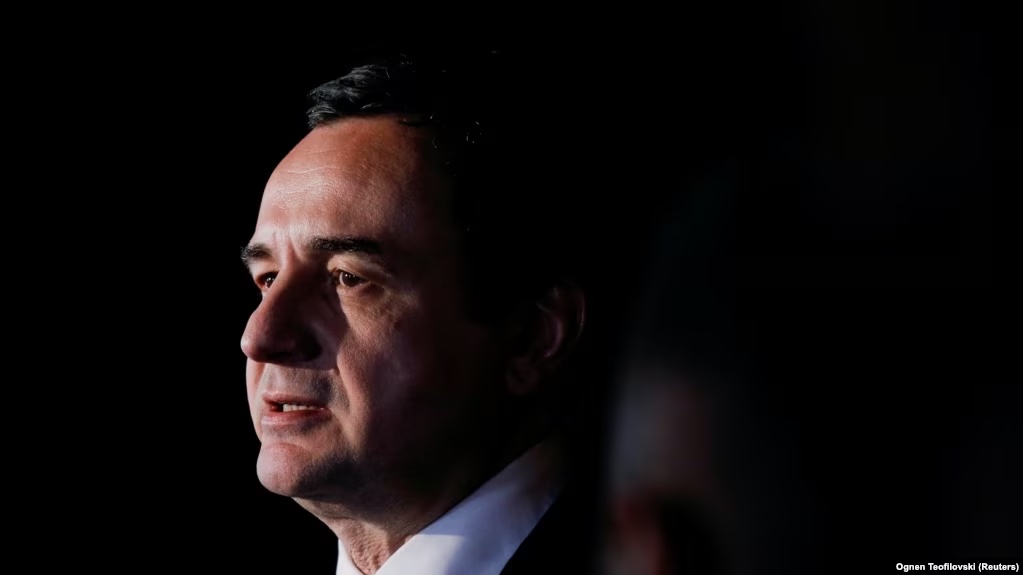Tuesday, May 6th 2014

Bosnian teaching reflects ethnic splits
In ethnically divided Bosnia and Herzegovina, there is no commonly held view either about Princip or about the origins of World War I.
Bosnian Serb children are taught a different interpretation of history to Bosniaks and Croats. For the Bosniaks and Croats, Princip was a Belgrade-backed political assassin. For Bosnian Serbs, the murder served only as a pretext for Austria-Hungary and German to commit military aggression against Serbia.
These divisions are also reflected in the rival commemorations of the upcoming centenary that will be held in Bosnia.
The Latin Bridge in Sarajevo where Archduke Franz Ferdinand was shot. Photo: Wikicommons.
A series of events will be held in Sarajevo, including exhibitions, concerts and a meeting of young peace activists from around the world.
However, Bosnian Serbs will hold their own events in the eastern town of Visegrad, programmed by film director Emir Kusturica, while a statue of Princip is due to be installed in Serb-run East Sarajevo.
In mainly Bosniak areas, like Sarajevo, the Bihac region in the northwest and the central Zenica-Doboj area, school textbooks highlight Princip’s links to Serbia.
The Sarajevo textbook says that Princip’s group, Young Bosnia, was “supported by secret organisations from Serbia”, while the Bihac textbook states more directly that the plotters were “supported by Serbia”. The Zenica textbook describes Young Bosnia as a “terrorist organisation”.
The history book used by Bosnian Croat pupils also describes Young Bosnia as a “terrorist” group.
But in the Serb-dominated Republika Srpska entity, Young Bosnia is simply described as an “organisation” and textbooks stress that Austria-Hungary “used” Franz Ferdinand’s assassination “to blame Serbia” and declare war on the country.
Unsurprisingly, this description of the outbreak of the conflict is similar to the one contained in textbooks used in Serbia itself.
Zeljko Vujadinovic, a history professor from Banja Luka in Republika Srpska, said that in Bosnia, “what we are looking at is the current political mind-set transferred to the past”.
Suggestions that Young Bosnia was a “pre-World War I Al-Qaida” were a result of the 1990s conflict, he insisted.
“The characterisation of Young Bosnia and Princip as terrorists is an attempt to place the blame for huge worldwide events on ‘Serbian territorial expansion policies’, which is evidently flawed,” Vujadinovic said.
Sarajevo history professor Zijad Sehic agreed that the past had been redrawn in the aftermath of the 1992-95 conflict in Bosnia and Herzegovina.
It was only since the collapse of Yugoslavia that Princip was now described as a Serbian nationalist rather than as a fighter for Yugoslav unity, he noted.
“Now that there is no more Yugoslavia, his actions are being viewed more narrowly and he has been reborn as a Serbian hero,” Sehic said./balkaninsight/
Etiketa: World War I History Divides Balkan Schoolchildren



